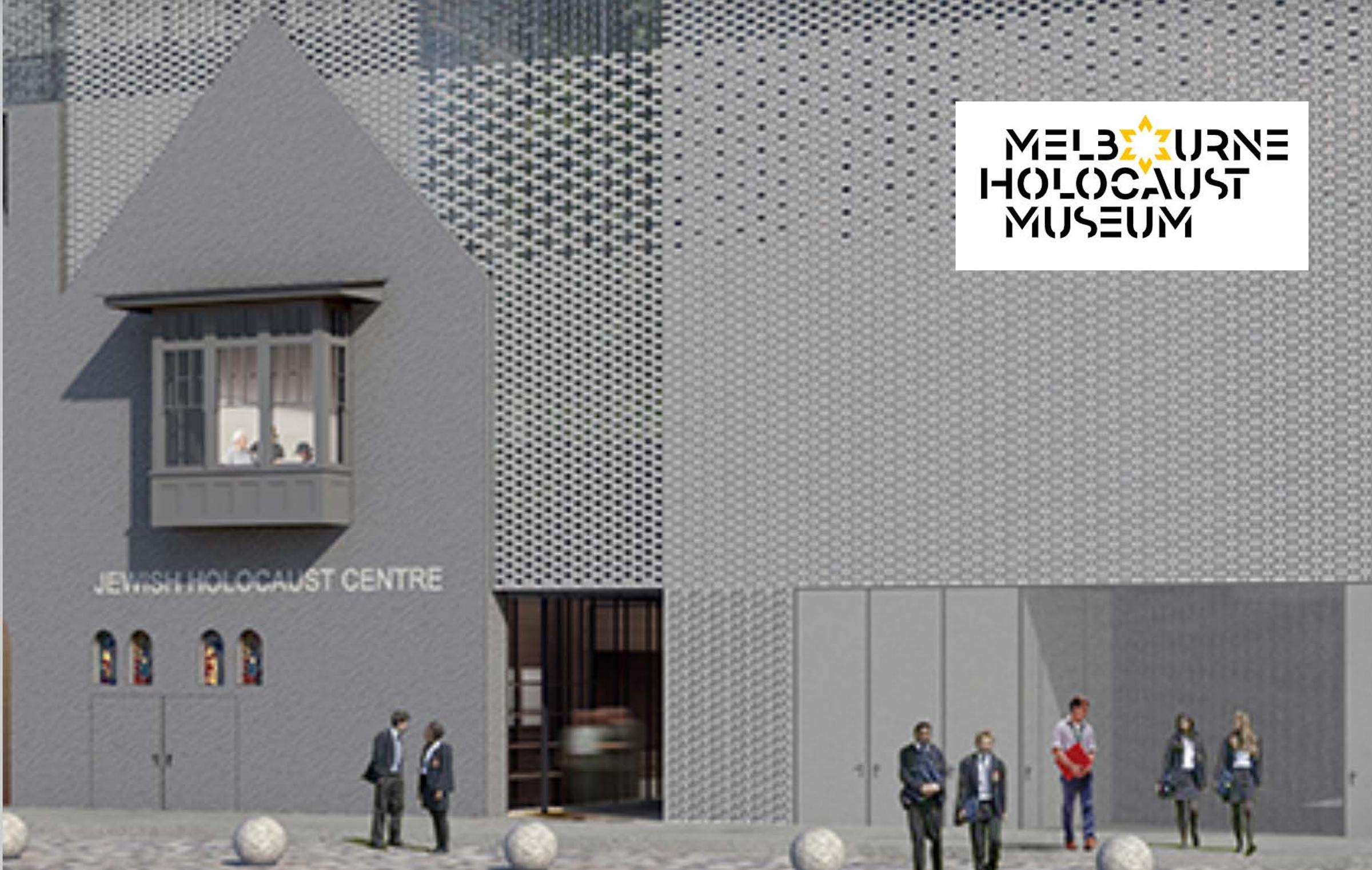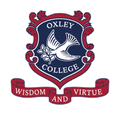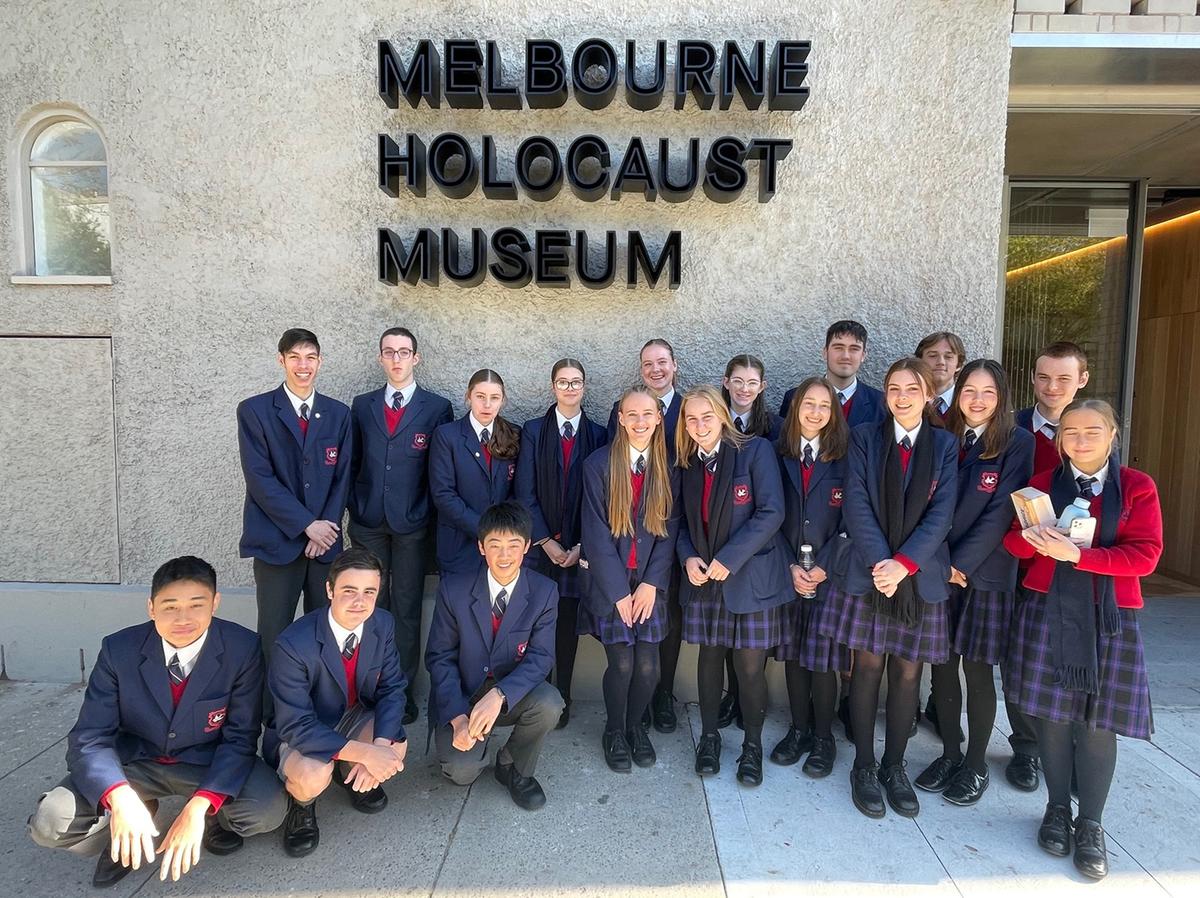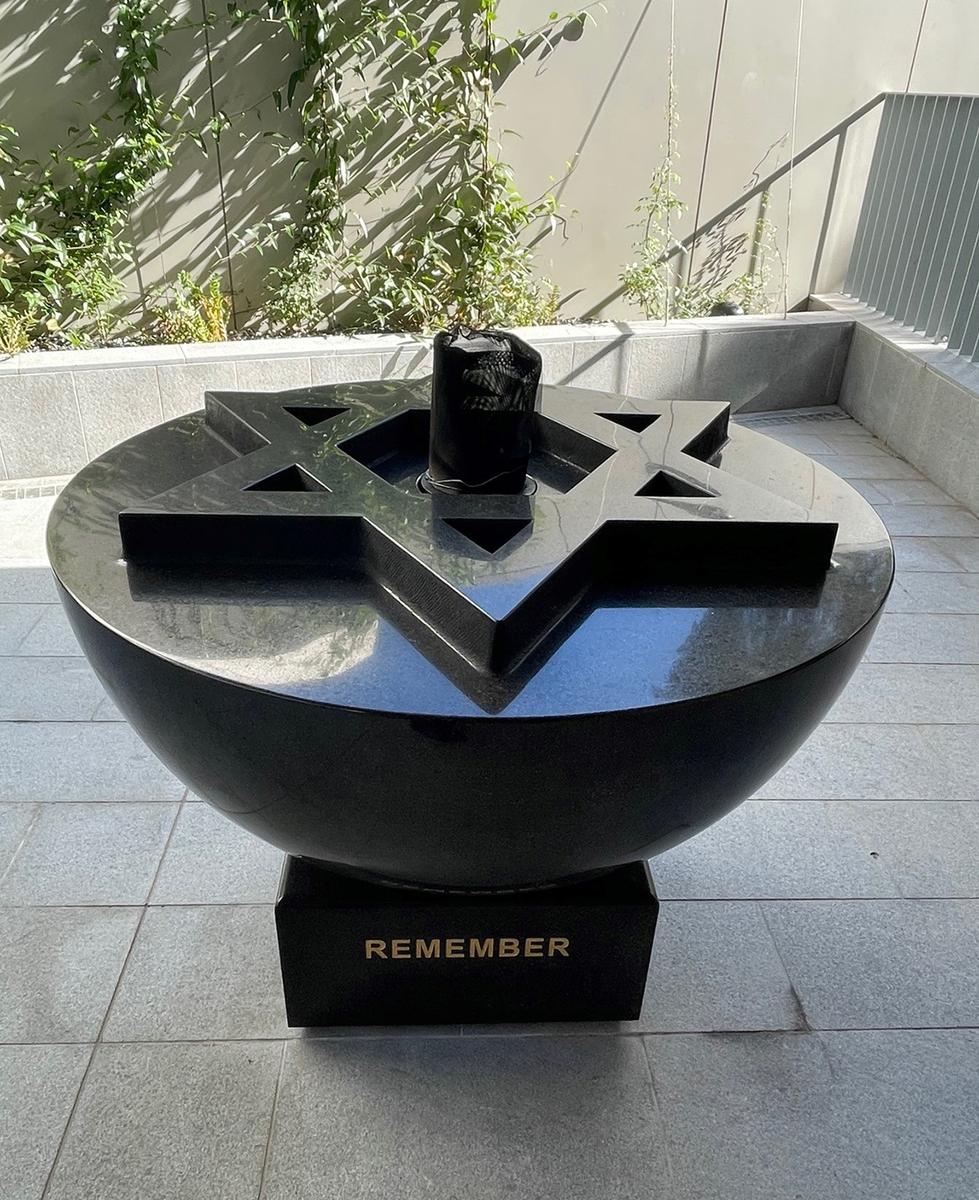Year 11 Modern History Excursion

Our Modern History class has been investigating social and cultural change in Nazi Germany, with a strong focus on the persecution of the Jews and the Holocaust. This included watching a screening of Schindler’s List, a harrowing depiction of the persecution of Polish Jews in Krakow. Before our visit to talk with Holocaust survivor Paul Grinwald at the Melbourne Holocaust Museum (MHM), we watched his video testimony in which he recounted his experiences as a French Jewish boy during World War II. Students then developed a range of questions to ask Paul, enabling them to move beyond the broad narrative of the Holocaust and to engage with him on a personal level. In an age of mass media consumption and the proliferation of conspiracy theories and disinformation, this type of authentic investigation is particularly important for all students. They can become witnesses to the horrors of the Holocaust and the suffering that hatred can bring and honour the memories of people like Paul by standing up to hatred and prejudice.
Our students participated in a range of object-based learning activities. This class has worked especially hard so far this year, and they were able to apply a high level of historical knowledge while working in groups to analyse a range of Holocaust artefacts, including items of clothing, letters, passports and more.
After the MHM experience, we visited the Budapest Restaurant in Elsternwick for an authentic Eastern European dining experience. David, the manager, shared his own family story with the class – both sets of his Jewish grandparents survived the Holocaust, and his restaurant is a living monument to their extraordinary lives. The food was very good too.
When reflecting on their learning, students had this to say:
Upon reflection, my trip to the Melbourne Holocaust Museum was a great learning experience. Being able to see primary evidence such as an ID tag from an actual survivor and feel it in my own hands was really incredible. Furthermore, it was remarkable to be able to see and speak to a survivor who experienced it firsthand. Paul gave a firsthand perspective of what it was like on the run from the Nazis. Darcy Lyons
Schindler's List helped improve my understanding of the Holocaust in many ways. It allowed me to gain a better understanding of the true level of the atrocities and the level of violence which occurred during this time. It was interesting to discover that even though Oskar Schindler was a member of the Nazi party, he did not share the party's views on the Jews, or that they should be exterminated. Simon Wang
The excursion overall was a really great day. It was extremely interesting to hear from Paul, who is a survivor of the Holocaust, and hear about how it impacted many countries over Europe, not just Germany. When I hear about the Holocaust, I tend to think mainly about Germany, but hearing from Paul, who is a French Jew, meant that I was able to see how countries all over Europe were affected and there was little escape. Summer LeeThe visit to the MHM was extremely impactful as I was able to learn and understand how the Holocaust affected everyone who experienced it differently. I learned how some survivors have gone back years later to where they came from, while others made their family promise to never go back due to the memories and symbolic meaning behind it. I believe that it was truly important that we are now able to hear about these experiences as we are the last generation to hear from a survivor - that we now have the power to continue to make a change so that nothing like the Holocaust can happen again! Aimee Whiting-Le Cras
The Melbourne Holocaust Museum was an eye-opener for me personally. One activity we did was looking at primary sources from the Holocaust. It felt surreal holding people's belongings from over 70 years ago. Additionally, having the opportunity to ask a Holocaust survivor (Paul) a question is an experience I'm grateful to have had. Two things stuck out for me when I was at the Museum. One was that my generation will be the last generation to ever speak to a Holocaust survivor. I think it's extremely important that we continue to learn about the Holocaust even after the survivors pass. The rise in anti-Semitic hate crimes in Melbourne outline why it is so important to learn about history, so it doesn't repeat itself. The second thing was what Paul, the survivor said, "We are all one race" and he explained that there's no room for hate in society. That was an extremely powerful testimony. Imagen Howarth
The Holocaust continues to be relevant to our lives today, 78 years after the collapse of the Nazi regime and the end of the Holocaust. Anti-Semitic hate crimes recently hit an all-time high in Victoria, where public displays of the Nazi swastika have now been criminalised. Closer to home, a local soccer ground in Mount Evelyn was vandalised with Nazi imagery. So, what can we do? I think the words of Rabbi Jonathan Sacks, Chief Rabbi of Belfast, Ireland, say it best:
“We should teach our children that it doesn’t have to be this way. That one who isn’t in my image is still in God’s image. That humanity lives in the face of a stranger. That difference doesn’t threaten but enlarges our world. Our children are capable of great courage; every act of courage gives birth to hope; and hope has the power to defeat hate. Let us honour the memory of those who died by teaching our children to honour life and never forget that the people who are not like us, are still people, like us.”
If you would like to learn more of Paul’s story, you can watch his video testimony here:
Stephen White
Head of Humanities


